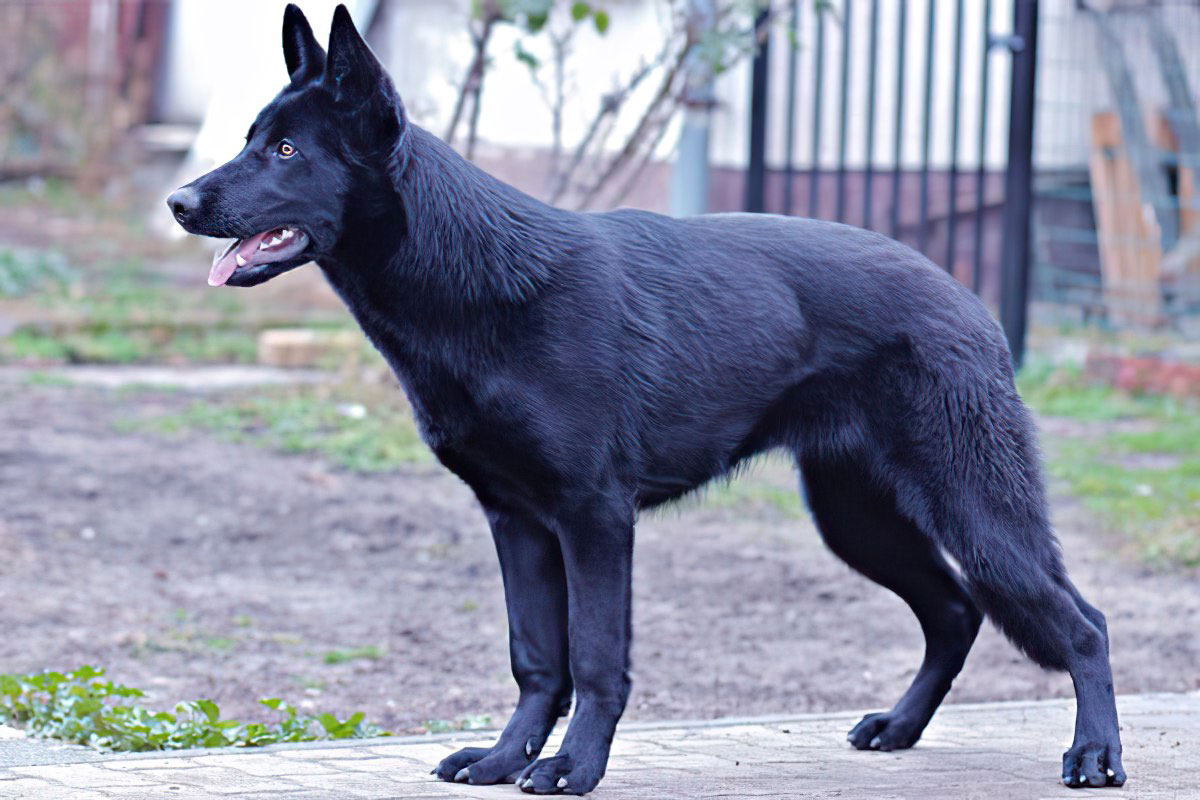Last Updated on August 17, 2023 by Fumipets
French Bulldog: A Charmingly Unique Companion
The French Bulldog, with its distinctive bat-like ears and endearing personality, has captured the hearts of dog lovers worldwide. This compact and charismatic breed is celebrated for its affectionate nature, making it a beloved companion for individuals and families alike.
In this brief exploration, we’ll uncover the essence of the French Bulldog and delve into some common questions that enthusiasts often have about this delightful breed.
French Bulldog
Meet the French bulldog if your ideal pet is a little comedian with a penchant for snoozing. These adorable puppies like playing just as much as they enjoy curling up on their owner’s lap and dozing off. They are a fantastic choice for city people since they won’t grow higher than 13 inches at the shoulder.
A Frenchie doesn’t need much room to be content. This breed is laid-back and makes a great companion for elders, families, and little ones. They like being around people and are simple to groom and delight.
Appearance
The French bulldog is definitely endearing, even if it may not have the same attractive grace as a golden retriever. With the exception of the wrinkled skin around their face and shoulders, they have a tiny, compact frame that is well-proportioned and rather strong.
Frenchies may have brindle patterns or black masks, although their most common hues are cream, fawn, and white. Their characteristic “squished up” face and dark brown eyes are both endearing. They shed moderately and have silky, lustrous coats that only sometimes need to be brushed to keep them clean.
The French bulldog is the tiny counterpart of the traditional bulldog, which may weigh up to 50 pounds at maturity. A healthy full-grown French bulldog weighs approximately 28 pounds. The AKC states that the French bulldog’s “bat ears and half-flat, half-domed skull are two distinctive features.”
Temperament
Although French Bulldogs are often referred to as being “chilled out,” they also like playing. As long as they have had the correct socialization, they get along well with companion animals. When food is involved, this breed learns quickly.
They are free thinkers and fun lovers, so making learning seem like playing a game will pique their interest. Given that Frenchies may be a little naughty, they will require an owner that can both joke with them and be strict about following their training regimen.
Those who have “patience, a kind disposition, gentle hands, and a loving spirit are the ideal owner for this darling breed,” according to Becky Smith, president of the French Bull Dog Club of America (FBDCA), who thrive on human connection. Frenchies just want to love and be loved in return (and get plenty of belly rubs!)
Living Needs
Despite their love of playing, Frenchies are as content to snuggle up on your lap for a nap or to sit at your feet while you work. “[If you are] the owner of a Frenchie—or shall I say if you are owned by a Frenchie—don’t expect an outdoor dog that can go jogging and then go to the beach on a hot sunny day,” Smith advises. They struggle in intense heat due to their flat face. Due to their overall weight in relation to their leg length, they are not outstanding swimmers.
The AKC advises against keeping a French bulldog alone near water and claims that their “front-heavy structure” is to blame for their inability to swim. Because French bulldogs are more prone to heat exhaustion, they will get enough exercise with a 15-minute stroll or play session on cooler nights. They are great apartment dogs as they don’t need a big yard or a lot of room to be content.

Care
Any Frenchie should get weekly brushing to maintain an attractive and healthy coat. They’ll need to take a bath around once a month, paying special care to their distinctive creases to prevent infection. Bulldog owners should routinely inspect their dog’s skin for sores or scabs and contact a veterinarian immediately away if anything seems out of the norm.
A French bulldog, like many breeds, needs to start socializing at an early age. They are capable of becoming quite possessive and guarding their people. Frenchies get along well with new people, other dogs, and cats as long as they are socialized as pups.
A Frenchie may not be the breed for you if a little saliva on the furniture concerns you. They might be challenging to toilet-train as well. They are brilliant but also independent, thus they could resist orders with a vengeance.
It will take some time and many treats to train a Frenchie, but they react well to praise and positive reinforcement for excellent conduct. Keep trying, and your little man will change.
French bulldogs may need assistance while reproducing. They find it challenging to mate with other Frenchies because of their very small hips. The majority of females use artificial insemination to get pregnant, and C-section delivery is used to birth the pups.
Health
The average lifespan of a French bulldog is 10 to 12 years, however, owners should be aware of various health issues the breed is renowned for. According to Kishen Parekh, DVM, of Northampton, United Kingdom, “the vast majority [of Frenchies] suffer from a disease called Brachycephalic Obstructive Airway Disease.”
These animals may be seen breathing with their mouths open because of the condition, which is brought on by an excess growth of the soft palate that blocks normal airflow. This ailment causes French bulldogs to snort and snuffle more often. Coughing, snoring, or trouble eating might all be red flags for something more severe.
Stenotic nares, or narrower or closed nostrils, are “another contributing factor,” according to Parekh. “This makes certain breeds snore when they are sleeping, and it may also seem like they are having trouble breathing. Due to their difficulty breathing, individuals run the risk of developing hyperthermia (heat stroke) when exercising.
Owners must take care to maintain their Frenchies well-hydrated and minimize their exposure to the sun. Additionally, French bulldogs are susceptible to inherited skin sensitivities and ocular problems including cherry eye. A trustworthy breeder will do these tests.

History
Despite its name, English is where the French bulldog had its start, not France. To keep rodents out of their cramped workspaces, lace workers in Nottingham maintained miniature bulldogs.
Many lace workers were compelled to migrate to France, where lace was still created by hand, during the height of the Industrial Revolution in the 1800s because they were being displaced by machines.
After decades of crossbreeding, the smaller bulldog that the French fell in love with eventually gave rise to the French bulldog, which is known for its distinctive bat ears. The species quickly became popular among Parisians, and soon every artist, actor, and star in the city desired one.
The small bulldog was a favorite of Americans traveling abroad, and it didn’t take long for Frenchies to become popular in the United States as well.
Early Frenchies had one of two ear types: the bat form, which was popular among Americans, or the rose ear, which was more frequent in its related breed, the bulldog. There was a lot of debate over this ear discrepancy among breed enthusiasts.
Although British and French breed enthusiasts objected, Americans believed that authentic Frenchies had to have the bat ears for which the breed is currently known. When rose ear Frenchies received the highest marks from non-American judges in the 1897 Westminster Kennel Club Dog Show in February, things reached a boiling point.
The French Bulldog Club of America was established in April 1897 by a number of well-known supporters of the breed who insisted that the breed standard include the bat ear. They succeeded in the end.
Q&A: French Bulldog
What makes the French Bulldog stand out among other breeds?
The French Bulldog’s most notable features include its charming bat ears, compact build, and expressive eyes. Its endearing appearance is matched by its friendly and adaptable personality, making it a popular choice for various lifestyles.
What is the origin of the French Bulldog?
The French Bulldog’s origins trace back to 19th-century England, where it was initially bred as a smaller version of the English Bulldog. It later gained popularity in France and became known as the “French Bulldog.”
What is the temperament of the French Bulldog?
French Bulldogs are known for their affectionate and playful nature. They are loyal companions who enjoy spending time with their owners. While they have a calm demeanor, they are also known for their occasional bursts of energy and love for play.
Are French Bulldogs good for apartment living?
Absolutely! French Bulldogs are well-suited for apartment living due to their small size and moderate exercise needs. They are content with indoor play and short walks, making them an ideal choice for urban dwellers.
Do French Bulldogs have any special health considerations?
Yes, French Bulldogs can be prone to certain health issues due to their unique anatomy, such as brachycephalic syndrome (breathing difficulties), hip dysplasia, and skin problems. Regular veterinary check-ups and responsible breeding practices can help mitigate these concerns.
Are French Bulldogs easy to train?
French Bulldogs are intelligent and eager to please, which makes them receptive to training. However, they can have a stubborn streak, so training should be consistent, positive, and engaging to keep their attention.
What kind of companionship do French Bulldogs offer?
French Bulldogs are exceptional companions known for their affectionate and loyal nature. They form strong bonds with their owners and thrive on human interaction. Their adaptable temperament allows them to be great companions for singles, families, and seniors alike.
In Conclusion: A Captivating Canine
The French Bulldog’s unique appearance, delightful personality, and adaptability have secured its place as a cherished canine companion. Whether you’re seeking a loyal friend for city living or a playful pal for family adventures, the French Bulldog’s charm and character are sure to bring joy to your life.


















